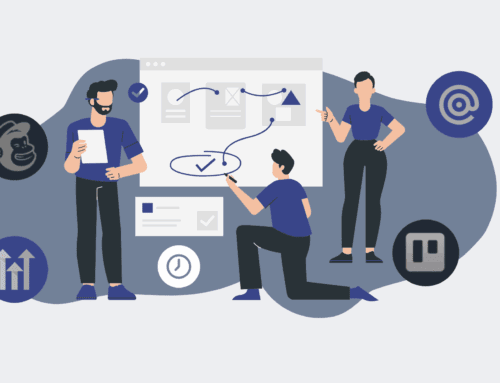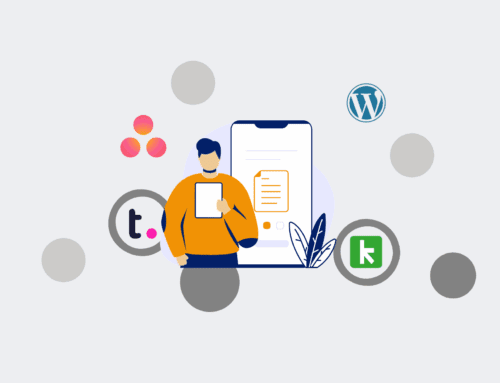What’s Next for HR Automation? Predictions from Industry Consultants
The landscape of Human Resources is undergoing a seismic shift, propelled by advancements in automation and artificial intelligence. What once felt like futuristic concepts are now integral to efficient, scalable, and employee-centric operations. Yet, for many HR leaders, navigating this evolving terrain can feel like venturing into uncharted waters. As industry consultants who live and breathe operational efficiency, we at 4Spot Consulting are constantly looking ahead, analyzing the currents, and predicting the next wave of innovation in HR automation. It’s not just about doing tasks faster; it’s about fundamentally transforming how HR drives business value.
Beyond Basic Efficiency: The Rise of Strategic HR Automation
For years, HR automation focused primarily on transactional efficiencies: automating payroll, onboarding checklists, or simple data entry. While these foundational steps remain crucial, the “next” in HR automation moves far beyond mere task offloading. We’re entering an era where automation isn’t just a cost-saving measure but a strategic enabler, deeply intertwined with talent acquisition, employee experience, and organizational agility. Businesses are increasingly recognizing that the real ROI comes from interconnected systems that leverage data to inform every decision, rather than just isolated process improvements.
AI as the Strategic Co-Pilot: Predictive Analytics and Hyper-Personalization
The immediate future of HR automation will be defined by intelligent systems acting as strategic co-pilots. This means a significant leap into predictive analytics and hyper-personalization. Imagine AI not just processing applications, but predicting which candidates are most likely to succeed based on vast datasets, reducing time-to-hire and improving quality of hire significantly. Furthermore, AI will personalize employee experiences, from customized learning paths and development opportunities to tailored benefits recommendations, all based on individual performance data, career aspirations, and even sentiment analysis.
This isn’t just about making things smoother; it’s about proactive talent management. Instead of reacting to turnover, AI will predict flight risks, allowing HR to intervene with targeted retention strategies. This shift from reactive to proactive, data-driven HR is where the true competitive advantage lies. Our work with clients often begins here, identifying how to harness existing data and integrate new AI capabilities to move beyond guesswork into informed, strategic action.
The Connected Enterprise: Integrating Disparate Systems
One of the biggest bottlenecks for HR today is the proliferation of siloed systems. Talent acquisition, HRIS, payroll, performance management, learning & development—each often lives in its own ecosystem, leading to manual data transfer, errors, and a fractured employee experience. The next frontier in HR automation demands a unified, interconnected enterprise. This is where strategic integration platforms, like Make.com, become indispensable.
We’ve seen firsthand how connecting these disparate systems can unlock immense value. For example, we helped an HR tech client save over 150 hours per month by automating their resume intake and parsing process using Make.com and AI enrichment, then syncing to their Keap CRM. This eliminated manual data entry, ensured accuracy, and freed their team to focus on candidate engagement, not administrative drudgery. This seamless flow of information, driven by our OpsMesh™ framework, creates a “single source of truth,” empowering HR leaders with a holistic view of their workforce and enabling automation that truly scales.
The Human Element in an Automated World: Ethical AI and Upskilling
As automation becomes more sophisticated, the conversation inevitably turns to the human element. Will robots take our jobs? Our prediction, and indeed our experience, suggests a different outcome: automation liberates HR professionals from low-value, repetitive tasks, allowing them to focus on high-value, human-centric work. This means more time for strategic planning, employee development, culture building, and empathetic support—areas where human intelligence and emotional insight are irreplaceable.
However, this future necessitates a commitment to ethical AI and continuous upskilling. HR leaders must ensure that automated systems are fair, unbiased, and transparent, particularly in areas like recruitment and performance evaluation. Furthermore, investing in training HR teams to work alongside AI, interpret data, and manage automated workflows will be critical. The role of the HR professional isn’t diminishing; it’s evolving into a more strategic, impactful function.
Navigating the Future: The Role of Expert Consultation
The promise of HR automation is immense, but the path to realizing it is complex. Many organizations struggle with where to start, which technologies to adopt, and how to integrate them effectively without disrupting current operations. This is precisely where expert consultation becomes invaluable. We don’t just implement tools; we apply our OpsMap™ strategic audit to uncover inefficiencies, surface opportunities, and roadmap profitable automations tailored to your specific business goals. We’ve seen businesses achieve 240% production increases and save over $1M annually by taking a strategic-first approach.
The next era of HR automation isn’t just about adopting new technology; it’s about fundamentally rethinking how your HR function operates, leveraging intelligence and connectivity to drive unprecedented levels of efficiency, engagement, and strategic impact. Those who embrace this shift strategically, with expert guidance, will not only survive but thrive in the competitive talent landscape ahead.
If you would like to read more, we recommend this article: Strategic HR’s New Era: The Indispensable Role of AI Automation Consultants







